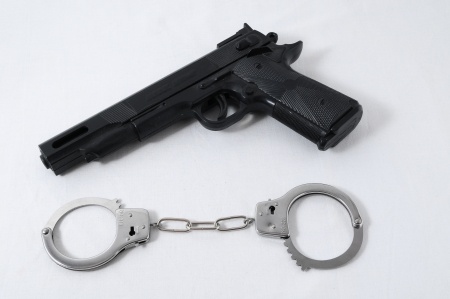
On June 24, 2021, a three-judge appellate panel decided the Gloucester County case of State v. W.C. The principal issue under N.J.S.A. 2C:25-21 was whether the State could forfeit the defendant’s weapons after a final domestic violence restraining order was vacated.
Former Monmouth County Superior Court Judge Vernoia wrote in relevant part: The State contends that although the FRO was vacated by the court following the second trial, N.J.S.A. 2C:25-29(b) barred defendant’s possession of a firearm for a minimum of two years following entry of the May 19, 2020 FRO. The State argues that when the court decided the forfeiture motion, defendant was “subject to” an order–the FRO–entered under the PDVA, that, by virtue of N.J.S.A. 2C:25-29(b)‘s two-year bar, disqualified defendant from possessing a weapon or firearms purchaser identification card under N.J.S.A. 2C:58-3(c)(6). The State reasons defendant is therefore subject to a disability under N.J.S.A. 2C:58-3(c)(6), and, as a result, it is entitled under N.J.S.A. 2C:25-21(d)(3) to forfeiture of the seized weapons. See In re F.M., (explaining the State is entitled to forfeiture of weapons seized pursuant to the PDVA where a defendant suffers from a “disability” under N.J.S.A. 2C:58-3(c).
The State’s claimed entitlement to forfeiture rests solely on a literal interpretation of N.J.S.A. 2C:25-29(b) that, in our view, leads to an absurd result. The logic underlying the State’s position is simple, but flawed. It claims N.J.S.A. 2C:25-29(b) is mandatory because the statute provides that an FRO “shall bar the defendant from . . . possessing . . . a firearm . . . during the period in which the restraining order is in effect or two years, whichever is greater.” The State argues that because the court entered an FRO following the first trial, N.J.S.A. 2C:25-29(b) mandates a minimum two-year bar to defendant’s possession of firearms that constitutes a disability under N.J.S.A. 2C:58-3(c)(6). The State contends the alleged disability requires forfeiture under N.J.S.A. 2C:21-25(d)(3). The State also contends N.J.S.A. 2C:25-29(b) provides no exception for FROs that are later vacated, and the mandatory bar requires a finding defendant “is subject to a restraining order pursuant to the PDVA prohibiting him from possessing any firearm” under N.J.S.A. 2C:58-3(c)(6).
The State’s interpretation of the statute seems logical. The vast majority of final restraining orders (FROs) have a permanent effect. Thus, the “two-year” language seems to exist as a temporary bar to weapons possession in the rare case of a vacated FRO.
